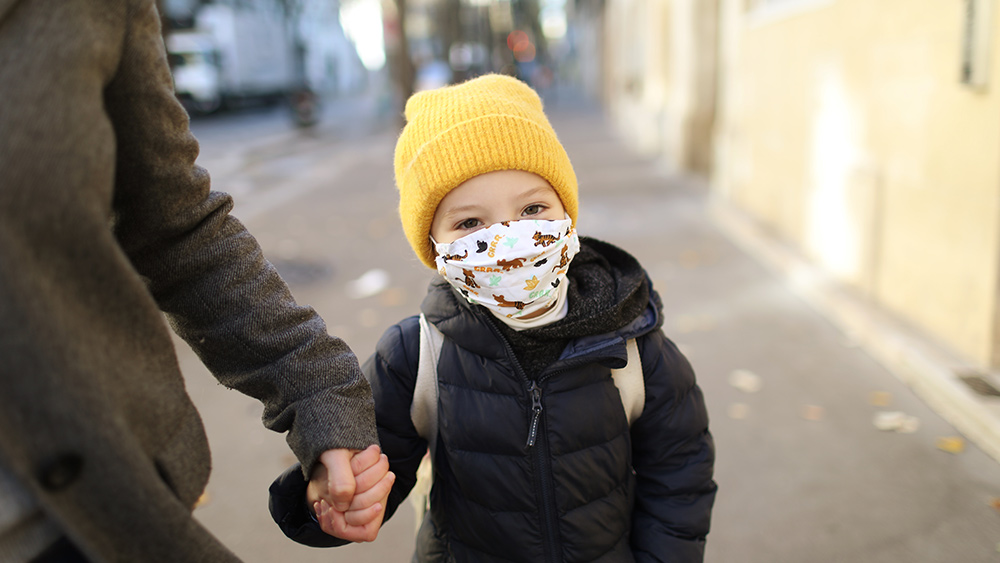Fauci secretly funded gain of function research at Wuhan lab that produced Covid-19
04/08/2021 / By Ethan Huff

Richard H. Ebright, a professor of chemical biology at Rutgers University, says that the National Institutes of Health (NIH) under Anthony Fauci “systematically thwarted” proper government oversight of dangerous pathogen research, a move that ultimately resulted in the creation of the Wuhan coronavirus (Covid-19).
An oversight board specifically created to scrutinize such research was never even given the chance to review the NIH grant that was given by Fauci to the Wuhan Institute of Virology (WIV), which we now know is where the Chinese virus originated.
High-risk gain of function research had previously been suspended back in 2014 due to widespread concerns within the scientific community that it could lead to “supercharged” viruses. It was later resurrected in 2017, though, after the Potential Pandemic Pathogens Control and Oversight (P3CO) Framework was formed within the Department of Health and Human Services (HHS).
The purpose of the P3CO committee is to evaluate whether government grants intended for gain of function or other questionable scientific research are worth the risks involved. In the case of the Wuhan flu, the P3CO was never even given the chance to evaluate the research methods that predicated its creation and release into the public.
As it turns out, the NIH subagency that awarded Fauci’s grant to the nonprofit group EcoHealth Alliance to study Chinese bat coronaviruses chose not to first forward it to the P3CO committee for review. This was obviously intentional to avoid having it get rejected.
“This is a systemic problem,” Ebright is quoted as saying about this major loophole in the review framework.
NIAID under Fauci says grant was not flagged for review because research was low-risk
The NIH subagency that awarded this non-reviewed grant to EcoHealth Alliance was none other than the National Institute of Allergy and Infectious Diseases (NIAID), which is headed up by Fauci.
This Fauci-led agency “systematically thwarted – indeed, systematically nullified – the HHS P3CO Framework by declining to flag and forward proposals for review,” Ebright says.
A spokesperson from the NIH claims that the reason Fauci’s NIAID did not flag the EcoHealth grant for proper independent review is because it was not as risky as watchdogs are making it out to be.
“After careful review of the grant, NIAID determined research in the grant was not gain-of-function research because it did not involve the enhancement of the pathogenicity or transmissibility of the viruses studied,” the spokesperson is quoted as saying.
“We would not submit research proposals that did not meet the definition, because otherwise we would need to submit everything.”
Part of the EcoHealth grant from Fauci’s NIAID involved a $600,000 transfer of American taxpayer cash to the WIV. Had this grant been subject to a P3CO review, it more than likely would have been rejected or at least modified with improved standards.
Back in 2018, U.S. Embassy officials issued two diplomatic cables warning about inadequate safety at the WIV lab. One of them specifically warned that bat coronavirus research taking place at the lab risked a future unleashing of another SARS-like pandemic.
The World Health Organization (WHO) also more recently issued a Covid-19 origin report that described the WIV’s research activities as involving “recombinant viruses,” meaning gain of function research. This defies the claim by Fauci’s NIAID that no gain of function research was taking place at the WIV.
“It is hard to overemphasize that the central logic of this grant was to test the pandemic potential of SARS-related bat coronaviruses by making ones with pandemic potential, either through genetic engineering or passaging, or both,” warned Drs. Jonathan Latham and Allison Wilson back in June.
More related news stories about the Wuhan coronavirus (Covid-19) conspiracy can be found at Pandemic.news.
Sources for this article include:
Tagged Under: bats, coronavirus, covid-19, Fauci, funding, gain-of-function, grant, National Institutes of Health, NIH, pandemic, Wuhan
RECENT NEWS & ARTICLES
COPYRIGHT © 2017 SCIENTIFIC NEWS





















